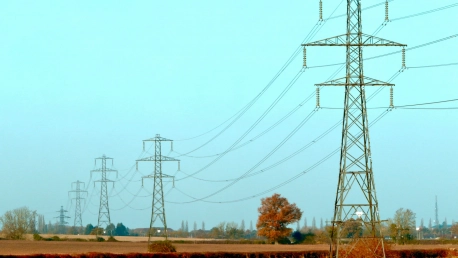In a bold move to enhance electricity access in its rural communities, Nigeria has committed to a substantial increase in its renewable energy capacity. This ambition, spearheaded by the Rural Electrification Agency (REA), targets the delivery of an additional 500 megawatts (MW) from renewable sources, aiming to light up countless homes and stimulate economic growth. The initiative took a significant step forward at the ARE Energy Access Investment Forum (EAIF) in Lagos, an event that brought together a diverse range of players in the energy sector to catalyze development and investment.At the EAIF, which welcomed participants from May 21-23, Nigeria’s vision materialized through the signing of two Memorandums of Understanding (MoUs). These agreements provide a strategic framework for rolling out mini-grids nationwide, a move set to revolutionize energy provision in unserved and underserved regions, connecting communities to the power grid for the first time and unlocking potential in ways yet to be imagined.
Bolstering SMEs and Ensuring Sustainability
In a partnership projected to have far-reaching implications, the Nigerian Small and Medium Enterprise Development Agency (SMEDAN) will support renewable energy initiatives that energize small and medium enterprises (SMEs). This joint effort isn’t merely about electrification; it’s about harnessing green energy to power a sustainable and equitable economic future for the nation. Furthermore, Nigeria is embracing responsible environmental practices with the introduction of the Partnership for Responsible Battery and Metal Recycling (ProBaMet). Supported by GIZ, ProBaMet aims to implement safe recycling protocols for lead-acid batteries stemming from renewable energy systems. This will ensure that as Nigeria progresses towards its renewable energy goals, it does so without compromising environmental health and safety.The spotlight also shone on ARE’s commitment to cultivating a skilled workforce fit for the burgeoning renewable sector through its CORE initiative. By investing in human capital, Nigeria is laying the groundwork not only for a sustainable energy future but also for job creation and the nurture of homegrown technological innovation.
The Role of Governance and Future Planning
At EAIF 2024, over 650 thought leaders and 2,200 stakeholders, including government officials and sector experts, converged in a powerful meeting of minds. Among the focal points was Nigeria’s DARES initiative, led by REA and infused with a significant €700 million World Bank investment. This pivotal project aims to illuminate the lives of 17.5 million Nigerians, advancing the nation’s quest for widespread electrification.Simultaneously, NERC’s move to revise tariffs for selected customer groups from March 3, 2024, captured the spotlight. This regulatory shift highlights the need for a judicious mix of augmenting energy access and crafting financial structures to sustain the energy sector’s foundation. These coordinated actions embody a period of transformative energy policy and infrastructure development in Nigeria, paving the way for a future where clean, dependable energy is accessible to every Nigerian, reinforcing the country’s commitment to progress and sustainability.









